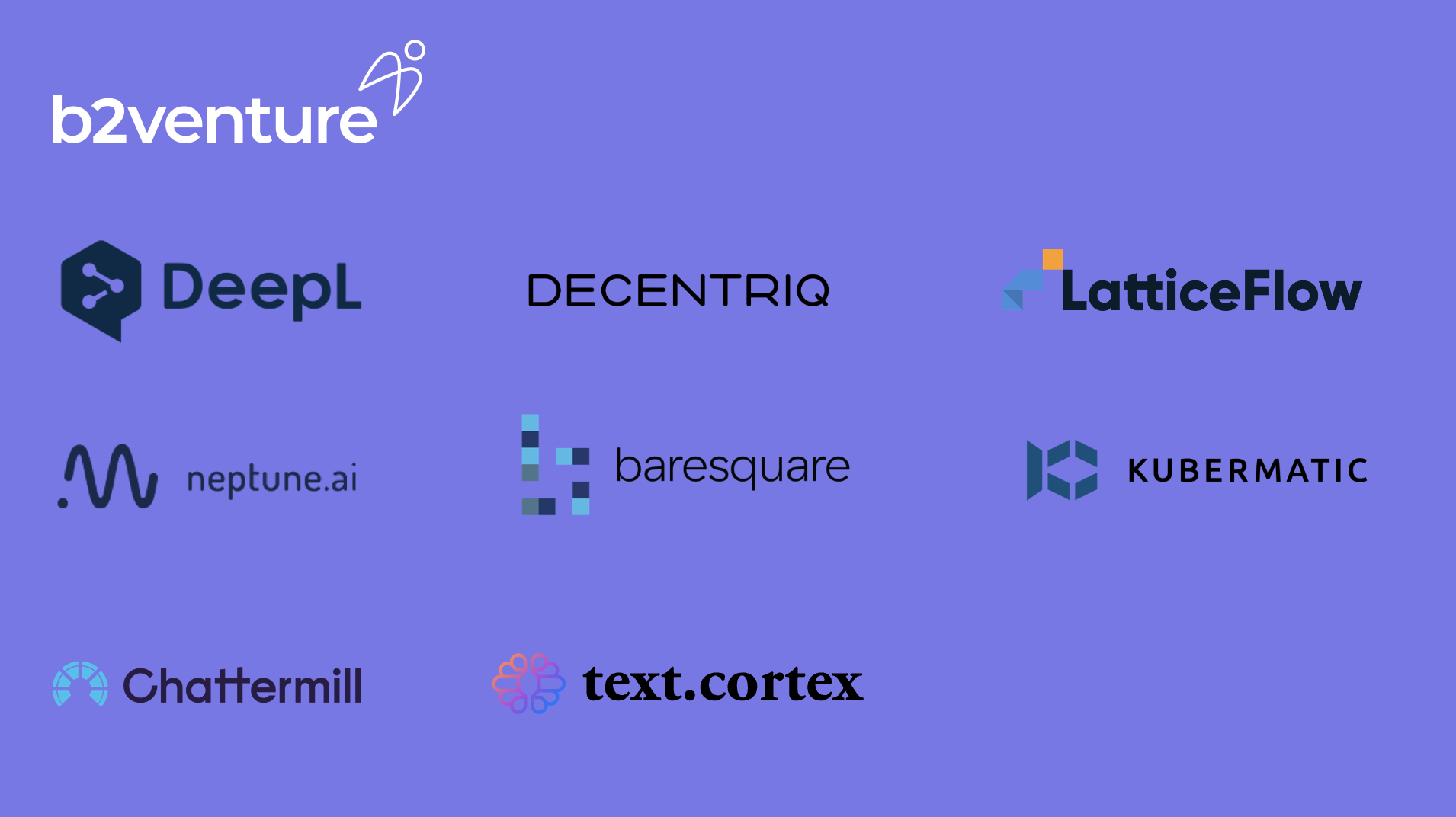European Innovation from the heart of Germany - a review of 24 hours in Paderborn and why our portfolio company assemblean is a prime example of the strength of regional startup ecosystems
European Innovation from the heart of Germany - a review of 24 hours in Paderborn and why our portfolio company assemblean is a prime example of the strength of regional startup ecosystems
When thinking about the German startup landscape, most people immediately picture Berlin's vibrant Mitte district or Munich's dynamic ecosystem. But beyond these established hubs lies a network of smaller cities that offer rich, diverse startup ecosystems with their own unique advantages. Our recent 24-hour visit to Paderborn revealed why this approach matters—and how one company, assemblean, perfectly exemplifies the power of combining regional heritage with global ambition.
Looking Beyond the Usual Suspects
Germany's startup scene is diversifying geographically at an impressive pace. The AI center in Heilbronn, YETI's entrepreneurship initiatives in Saxony, and the "Hinterland of Things" connecting traditional industry with startups in central Germany are breathing new life into these hubs. This shift is reflected in investment patterns, with promising ventures now emerging from unexpected locations.
A startup's location significantly influences its DNA, shaping its culture, values, and business philosophy. Paderborn-based assemblean is a prime example of how regional roots and having genuine access to the “German Mittelstand” with all its Hidden Champions can create a distinctive competitive advantage in the race to enhance industrial companies with AI.

The Founders
This company personifies European values through its strong regional connections combined with global thinking and action:
- Xiaojun Yang, who came from Yantai, a lesser-known Chinese city with millions of inhabitants to study in Paderborn, Germany
- Alexander Pöhler, who grew up in the same Paderborn street where he now lives, attended local educational institutions, and later studied in China
Together, they've created a powerful connection between two continents, merging their complementary perspectives and experiences. This cross-cultural foundation gives assemblean a natural advantage in navigating global supply chains and understanding diverse market needs. From nitty gritty to big and global.
assemblean's Mission
Building on Paderborn's tradition of combining hardware and software innovation, assemblean rethinks how production works today. In light of the current geopolitical situation, the company is in the prime position to enable intelligent nearshoring of production to Europe without compromising on trust in partnerships and global trade. By providing a "Production-as-a-Service" platform that enables large-scale, on-demand manufacturing of industrially engineered products, customers simply upload their product specifications to the platform and assemblean leverages its extensive supplier network to cover the entire production and assembly process. This approach delivers significant cost savings, faster delivery times and high quality production without operational complexity, freeing up resources for companies to focus on their core business.
Paderborn: A Microcosm of European Strength
Paderborn itself exemplifies Europe's past and potential:
- Rich history: the city has historical significance dating back to Charlemagne (Karl der Große), who essentially united early versions of "France" and "Germany" in this region
- Academic tradition: A university city since 1614, with the university re-established in 1972
- Resilience: despite 85% of its buildings being destroyed in the final months of World War II, it has rebounded dramatically
- Innovation hub: today, it's a thriving university city, thanks in part to entrepreneurs like Heinz Nixdorf, Germany's greatest computer pioneer, who unfortunately misjudged the potential of personal computers, declining a partnership with Apple Computer that could have changed technology history

Paderborn's Technology Ecosystem
Building on its heritage, Paderborn has developed an impressive technology ecosystem despite its modest size, making it a hidden gem in Germany's innovation landscape.
Research Excellence
- Two Fraunhofer Institutes: The Fraunhofer IEM (mechatronic systems) and IOSB-INA (industrial automation) provide cutting-edge applied research
- University Research Centers: The interdisciplinary Heinz Nixdorf Institute and the Paderborn Center for Parallel Computing (PC²) with its Noctua supercomputer
Industrial Connections
- Technology Park housing over 70 tech companies
- Corporate Innovation Centers from Weidmüller, Phoenix Contact, and dSPACE
- Legacy of Nixdorf Computer AG, which established the region's computing expertise
Startup Support
- Garage33: University-affiliated incubator that has launched 50+ startups
- TecUP: Technology and Business Development Center connecting academia with industry
- Success stories including DeepL, whose founder and CEO Jarek Kytolowski did his PhD at Paderborn University
Cultural Heritage
- The Heinz Nixdorf MuseumsForum (HNF): World's largest computer museum
- Engineering tradition dating back decades
Practical Advantages
Beyond history and infrastructure, Paderborn offers tangible benefits for growing companies:
- Rich talent pool: The university produces exceptional graduates
- Affordable living: With average rent at €8.30/m² compared to €20 in central Berlin, both companies and employees can benefit from lower costs
- Strategic location: Proximity to Germany's industrial heartland and global players like Bertelsmann, Miele, Claas, and Dr. Oetker
The European Advantage: Regional Identity + Global Vision
What Paderborn and assemblean demonstrate is that Europe's greatest strength may lie in this very combination: deep regional identity paired with expansive global vision. Unlike startup ecosystems that emphasize uniformity, Europe's diverse regional centers offer distinct advantages while remaining connected to broader networks.
assemblean shows how a company can draw strength from its local foundations—Paderborn's engineering excellence, academic resources, and industrial heritage—while addressing global challenges. Their approach to nearshoring production represents exactly the kind of balanced innovation Europe needs: neither isolationist nor dependent, but confidently interdependent.
Looking Forward
As Europe navigates complex global transitions in manufacturing, supply chains, and technological sovereignty, companies like Assemblean offer a template for success. By embracing their regional identity while maintaining a global outlook, they avoid both parochialism and rootlessness.
For investors and policy makers, this suggests the value of looking beyond the obvious innovation hubs to discover the unique strengths of Europe's regional ecosystems. The next generation of European unicorns may well emerge not from Berlin or Paris, but from places like Paderborn—cities with deep historical roots, strong technical education, and a balanced perspective on globalization.
Xiaojun and Alexander embody what the German word "Demut" means: To be humble, to be ready to serve and to be brave at the same time. assemblean's story reminds us that innovation often flourishes not in the spotlight, but in places with the perfect balance of heritage and ambition, local knowledge and global perspective. It's a reminder that in the European context, "regional" doesn't mean "provincial"—it can be the foundation for truly global impact.
When thinking about the German startup landscape, most people immediately picture Berlin's vibrant Mitte district or Munich's dynamic ecosystem. But beyond these established hubs lies a network of smaller cities that offer rich, diverse startup ecosystems with their own unique advantages. Our recent 24-hour visit to Paderborn revealed why this approach matters—and how one company, assemblean, perfectly exemplifies the power of combining regional heritage with global ambition.
Looking Beyond the Usual Suspects
Germany's startup scene is diversifying geographically at an impressive pace. The AI center in Heilbronn, YETI's entrepreneurship initiatives in Saxony, and the "Hinterland of Things" connecting traditional industry with startups in central Germany are breathing new life into these hubs. This shift is reflected in investment patterns, with promising ventures now emerging from unexpected locations.
A startup's location significantly influences its DNA, shaping its culture, values, and business philosophy. Paderborn-based assemblean is a prime example of how regional roots and having genuine access to the “German Mittelstand” with all its Hidden Champions can create a distinctive competitive advantage in the race to enhance industrial companies with AI.

The Founders
This company personifies European values through its strong regional connections combined with global thinking and action:
- Xiaojun Yang, who came from Yantai, a lesser-known Chinese city with millions of inhabitants to study in Paderborn, Germany
- Alexander Pöhler, who grew up in the same Paderborn street where he now lives, attended local educational institutions, and later studied in China
Together, they've created a powerful connection between two continents, merging their complementary perspectives and experiences. This cross-cultural foundation gives assemblean a natural advantage in navigating global supply chains and understanding diverse market needs. From nitty gritty to big and global.
assemblean's Mission
Building on Paderborn's tradition of combining hardware and software innovation, assemblean rethinks how production works today. In light of the current geopolitical situation, the company is in the prime position to enable intelligent nearshoring of production to Europe without compromising on trust in partnerships and global trade. By providing a "Production-as-a-Service" platform that enables large-scale, on-demand manufacturing of industrially engineered products, customers simply upload their product specifications to the platform and assemblean leverages its extensive supplier network to cover the entire production and assembly process. This approach delivers significant cost savings, faster delivery times and high quality production without operational complexity, freeing up resources for companies to focus on their core business.
Paderborn: A Microcosm of European Strength
Paderborn itself exemplifies Europe's past and potential:
- Rich history: the city has historical significance dating back to Charlemagne (Karl der Große), who essentially united early versions of "France" and "Germany" in this region
- Academic tradition: A university city since 1614, with the university re-established in 1972
- Resilience: despite 85% of its buildings being destroyed in the final months of World War II, it has rebounded dramatically
- Innovation hub: today, it's a thriving university city, thanks in part to entrepreneurs like Heinz Nixdorf, Germany's greatest computer pioneer, who unfortunately misjudged the potential of personal computers, declining a partnership with Apple Computer that could have changed technology history

Paderborn's Technology Ecosystem
Building on its heritage, Paderborn has developed an impressive technology ecosystem despite its modest size, making it a hidden gem in Germany's innovation landscape.
Research Excellence
- Two Fraunhofer Institutes: The Fraunhofer IEM (mechatronic systems) and IOSB-INA (industrial automation) provide cutting-edge applied research
- University Research Centers: The interdisciplinary Heinz Nixdorf Institute and the Paderborn Center for Parallel Computing (PC²) with its Noctua supercomputer
Industrial Connections
- Technology Park housing over 70 tech companies
- Corporate Innovation Centers from Weidmüller, Phoenix Contact, and dSPACE
- Legacy of Nixdorf Computer AG, which established the region's computing expertise
Startup Support
- Garage33: University-affiliated incubator that has launched 50+ startups
- TecUP: Technology and Business Development Center connecting academia with industry
- Success stories including DeepL, whose founder and CEO Jarek Kytolowski did his PhD at Paderborn University
Cultural Heritage
- The Heinz Nixdorf MuseumsForum (HNF): World's largest computer museum
- Engineering tradition dating back decades
Practical Advantages
Beyond history and infrastructure, Paderborn offers tangible benefits for growing companies:
- Rich talent pool: The university produces exceptional graduates
- Affordable living: With average rent at €8.30/m² compared to €20 in central Berlin, both companies and employees can benefit from lower costs
- Strategic location: Proximity to Germany's industrial heartland and global players like Bertelsmann, Miele, Claas, and Dr. Oetker
The European Advantage: Regional Identity + Global Vision
What Paderborn and assemblean demonstrate is that Europe's greatest strength may lie in this very combination: deep regional identity paired with expansive global vision. Unlike startup ecosystems that emphasize uniformity, Europe's diverse regional centers offer distinct advantages while remaining connected to broader networks.
assemblean shows how a company can draw strength from its local foundations—Paderborn's engineering excellence, academic resources, and industrial heritage—while addressing global challenges. Their approach to nearshoring production represents exactly the kind of balanced innovation Europe needs: neither isolationist nor dependent, but confidently interdependent.
Looking Forward
As Europe navigates complex global transitions in manufacturing, supply chains, and technological sovereignty, companies like Assemblean offer a template for success. By embracing their regional identity while maintaining a global outlook, they avoid both parochialism and rootlessness.
For investors and policy makers, this suggests the value of looking beyond the obvious innovation hubs to discover the unique strengths of Europe's regional ecosystems. The next generation of European unicorns may well emerge not from Berlin or Paris, but from places like Paderborn—cities with deep historical roots, strong technical education, and a balanced perspective on globalization.
Xiaojun and Alexander embody what the German word "Demut" means: To be humble, to be ready to serve and to be brave at the same time. assemblean's story reminds us that innovation often flourishes not in the spotlight, but in places with the perfect balance of heritage and ambition, local knowledge and global perspective. It's a reminder that in the European context, "regional" doesn't mean "provincial"—it can be the foundation for truly global impact.

The Author

Anna Bosch
Principal
Anna is Principal in the b2venture fund team, focusing on software solutions across a range of verticals, including EdTech, FinTech, and sustainability, as well as being our in-house expert for all things ESG.
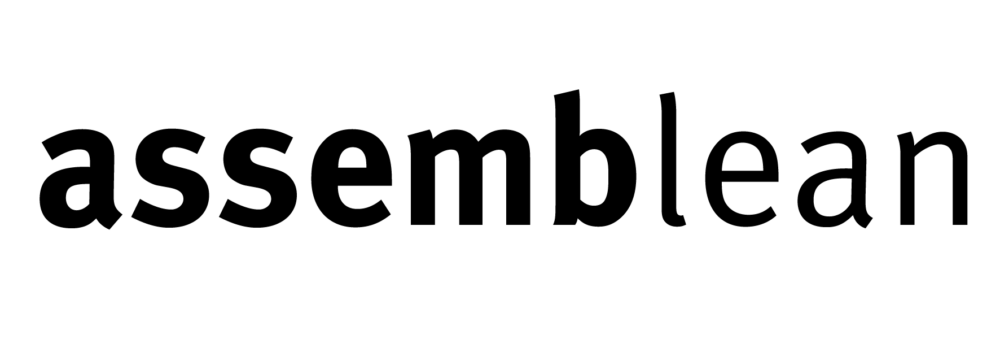
Team








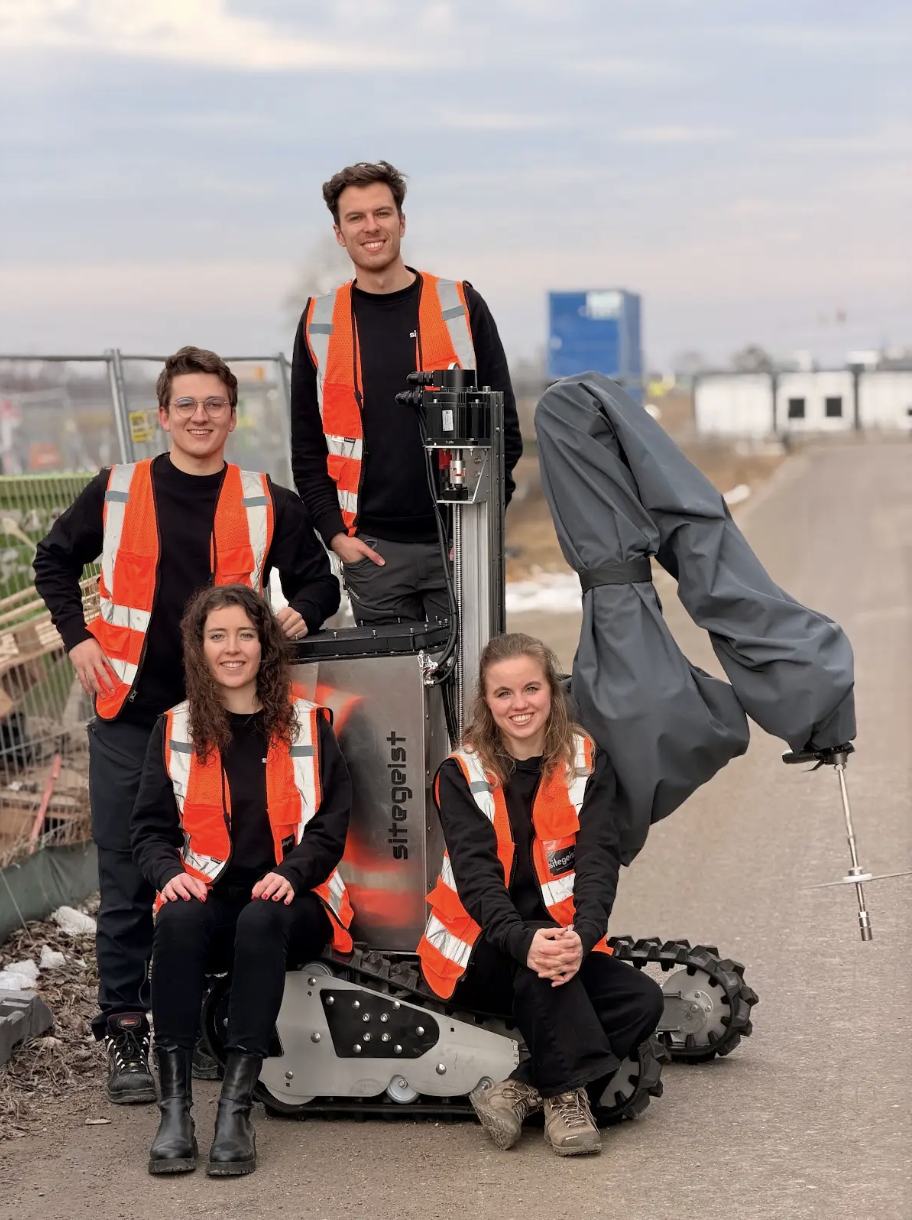
.jpg)



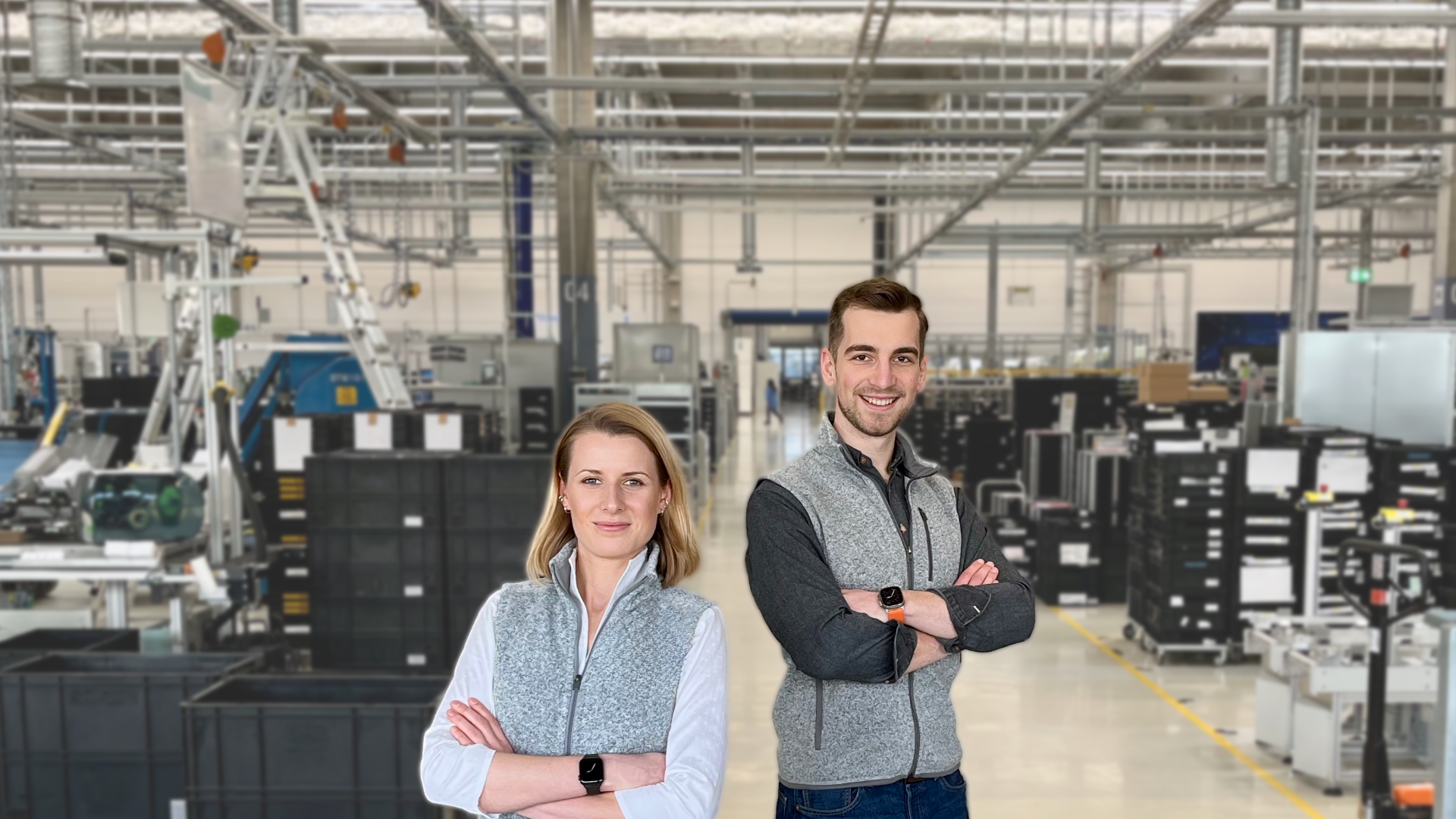





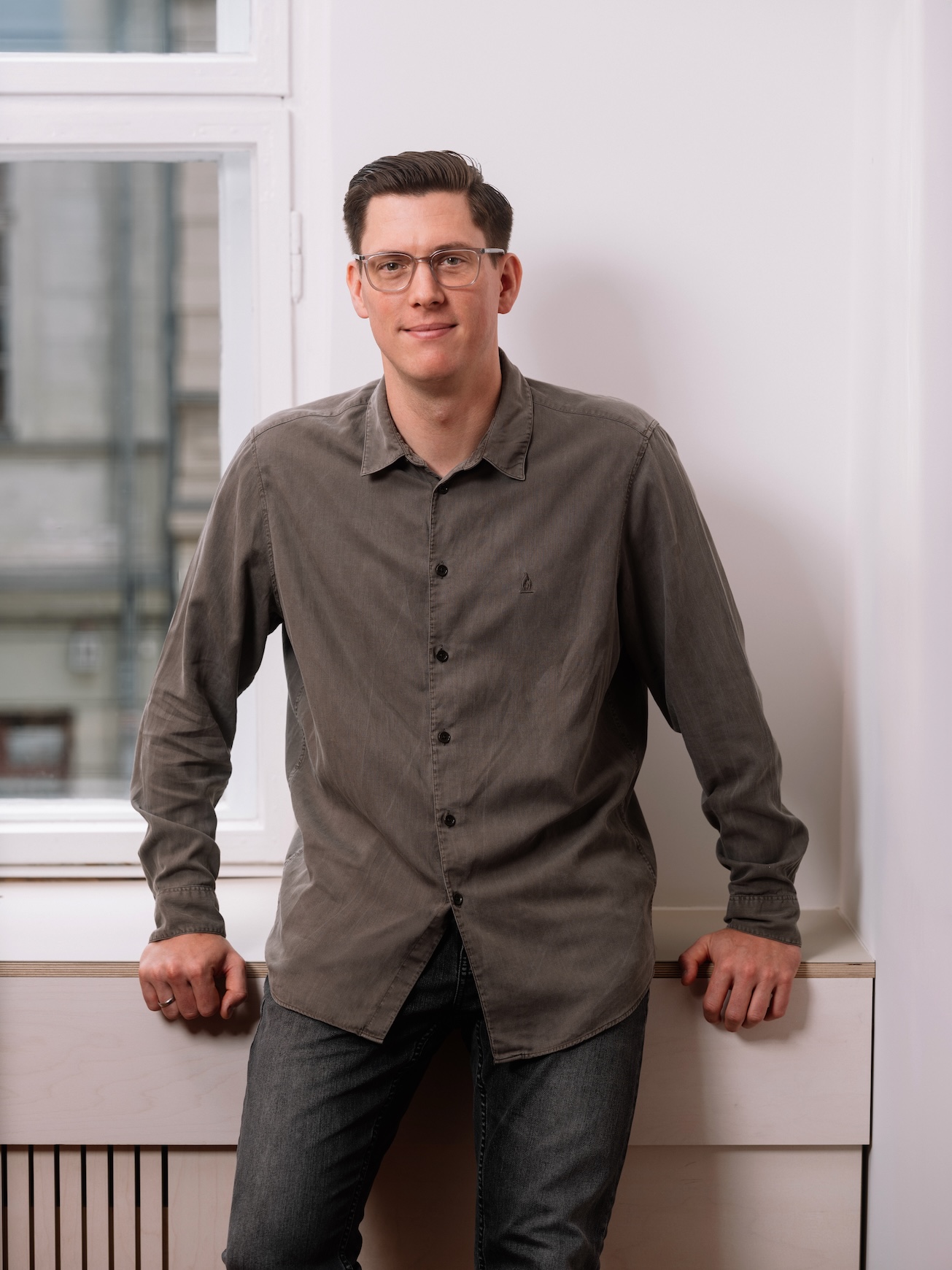


.png)




.jpg)
-min.png)


.jpg)













































.jpg)

